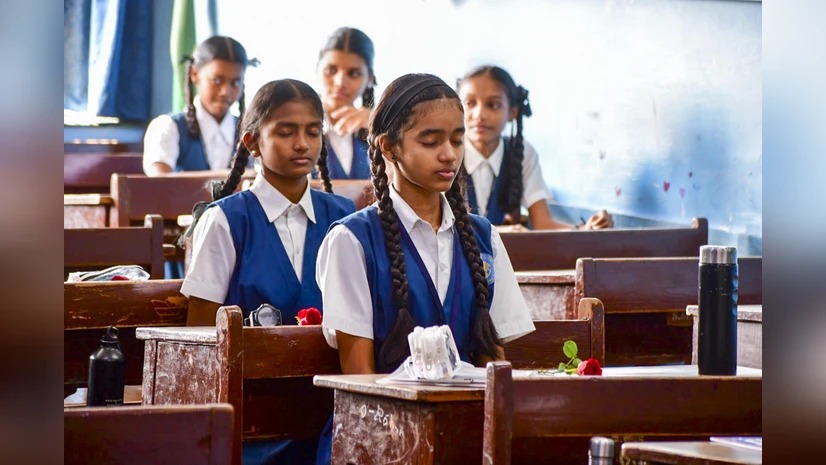Nirmaljit Kaur, J.@mdashThis is revision against the order dated 26.5.2010 passed by the Civil Judge, (Sr. Divn.) S.A.S. Nagar Mohali, whereby the application filed by the Petitioner under Order 6 Rule 17 CPC for amendment of the written statement was dismissed.
2. The facts in short are that Respondents No. 1 to 4 filed a civil suit against the Petitioner praying for declaration to the effect that after death of their father, they and the Petitioner became owners in possession of the house in dispute. The Petitioner filed his written statement but subsequently moved an application under Order 6 Rule 17 CPC praying for amendment of the written statement and to add his counter claim as per share given to him in the Will.
3. While challenging the impugned order, learned Counsel for the Petitioner submitted that the Petitioner having no experience of litigation and fighting first case of his life, engaged counsel and filed his written statement mentioning therein that late father of Petitioner and Respondent Nos. 1 to 4 executed a Will dated 21.8.2002 (P-3) and bequeathed that the property is to be acquired by Petitioner and Respondent Nos. 1 to 4 as per share mentioned in the said Will (P-3). However, no counter-claim was advised to be set up in his written statement. Later on, when the Petitioner changed C.R. No. 5388 of 2010 -2-his counsel, then he came to know that it was necessary to claim his share by way of counter-claim. It was further submitted that the said application was moved at a preliminary stage and even issues were not framed.
Heard.
Order 6 Rule 17 CPC reads as under:
17. Amendment of pleadings.-The court may at any stage of the proceedings allow either party to alter or amend his pleadings in such manner and on such terms as may be just, and all such amendments shall be made as may be necessary for the purpose of determining the real questions in controversy between the parties:
Provided that no application for amendment shall be allowed after the trial has commenced, unless the Court comes to the conclusion that in spite of due diligence, the party could not have raised the matter before the commencement of trial.
4. Hon''ble the Supreme Court in the case of
18. This Court in Laxmindas Dayabhai Kabrawala v. Nanabhai Chunilal Kabrawala held: (AIR p.17, para 11)
11. The question has therefore to be considered on principle as to whether there is anything in law-statutory or otherwise-which precludes a court from treating a counterclaim as a plaint in a cross-suit. We are unable to see any. No doubt, the CPC prescribes the contents of a plaint and it might very well be that a counterclaim which is to be treated as a cross-suit might not conform to all these requirements but this by itself is not sufficient to deny to the court the power and the jurisdiction to read and construe the pleadings in a reasonable manner. If, for instance, what is really a plaint in a cross-suit is made part of a written statement either by being made an annexure to it or as part and parcel thereof, though described as a counterclaim, there could be no legal objection to the court treating the same as a plaint and granting such relief to the Defendant as would have been open if the pleading had taken the form of a plaint. Mr Desai had to concede that in such a case the court was not prevented from separating the written statement proper from what was described as a counterclaim and treating the latter as a cross-suit. If so much is conceded it would then become merely a matter of degree as to whether the counterclaim contains all the necessary requisites sufficient to be treated as a plaint making a claim for the relief sought and if it did it would seem proper to hold that it would be open to a court to convert or treat the counterclaim as a plaint in a cross-suit. To hold otherwise would be to erect what in substance is a mere defect in the form of pleading into an instrument for denying what justice manifestly demands. We need only add that it was not suggested that there was anything in Order 8 Rule 6 or in any other provision of the Code which laid an embargo on a court adopting such a course.
19. Parliament, however, has placed an embargo while giving effect to the decision of this Court in inserting Order 8 Rule 6A of the Code of Civil Procedure. While there exists a statutory bar, the Court''s jurisdiction cannot be exercised.
5. Thus, taking into account the provision of Order 8 Rule 6A and applying the test in the present case, the said relief cannot be granted. The Petitioner has already submitted his written statement on 5.6.2007. Therefore, the application for amendment was filed after almost one year on 5.10.2008, which is much after the filing of the written statement. As such, there is clear embargo as per Order 8 Rule 6A.
6. Even though, it is discretionary relief and depends upon the facts of each case, the same should be exercised in a judicious manner. In the present case the only reasons for not having filed the counter claim is that the Petitioner was not advised by the earlier counsel and that he is filing the counter claim only after the advice given by the subsequent counsel engaged by him. To my mind, this is not a sufficient ground to ignore the statutory bar prescribed in Order 8 Rule 6A of CPC.
7. In view of the above, the present petition is dismissed being devoid of merit.

